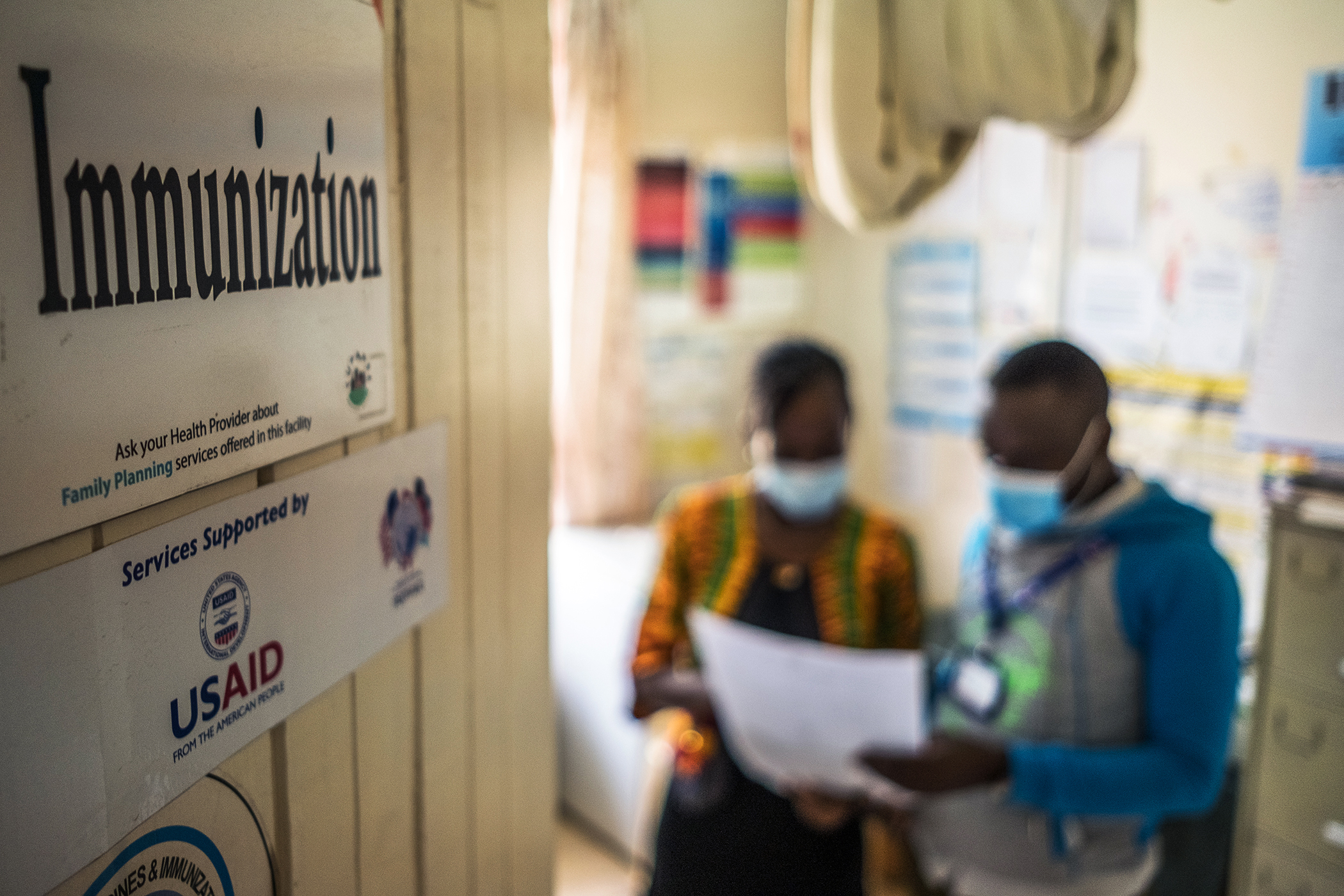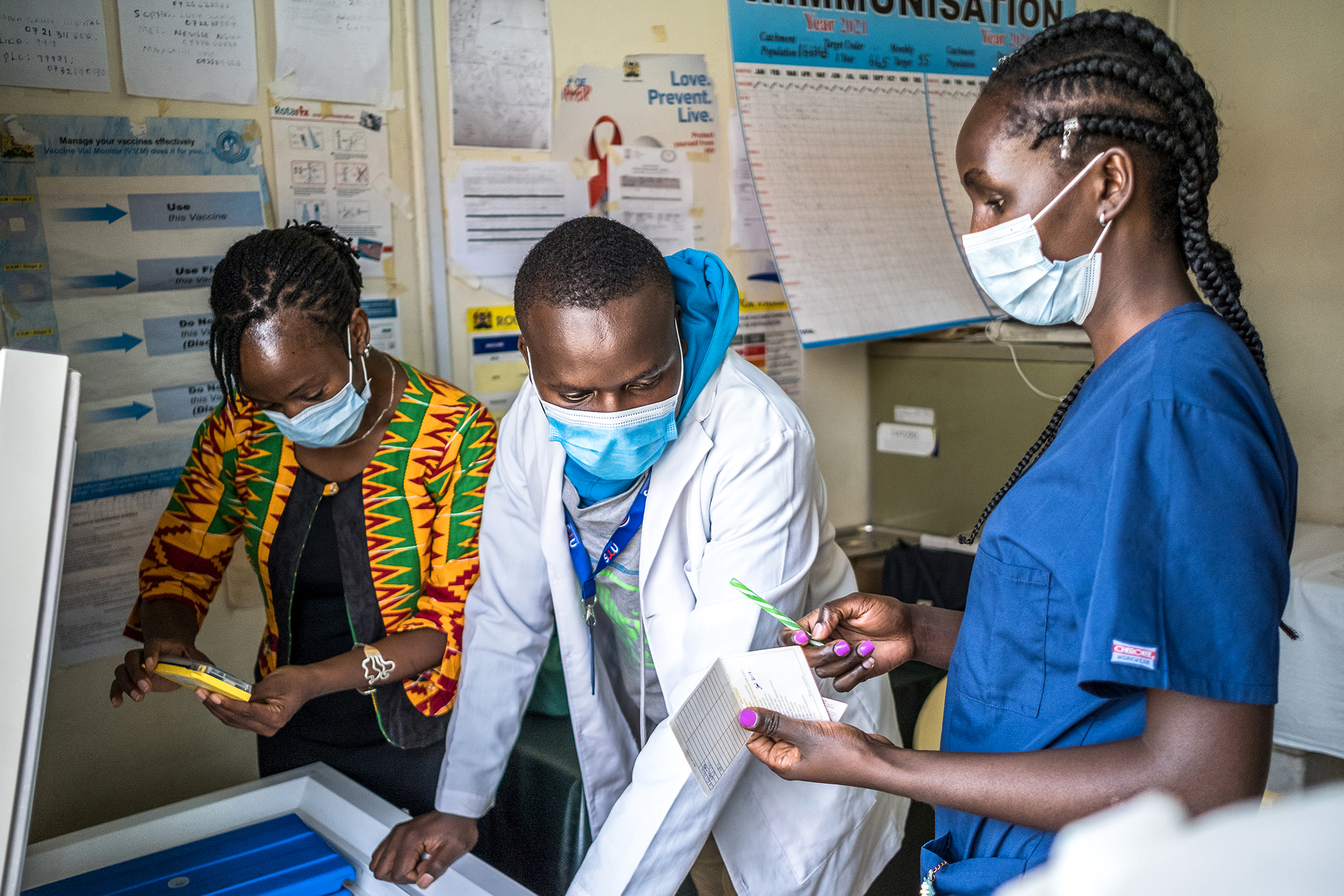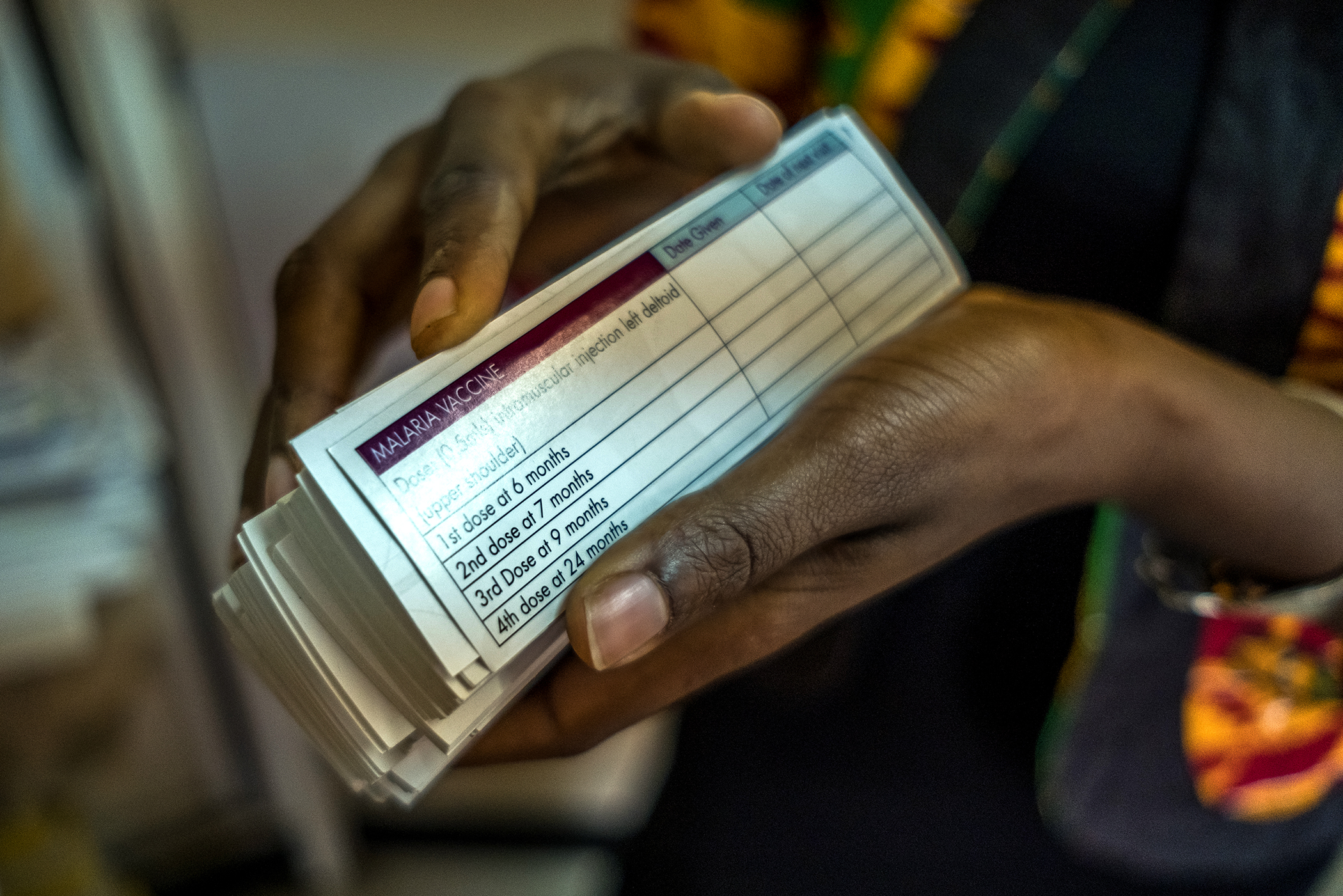Nearly three decades after contracting malaria multiple times in childhood, Dr. Rose Jalang’o is now spearheading Kenya’s rollout of the groundbreaking malaria vaccine.
The RTS,S/AS01 (RTS,S) malaria vaccine was approved by the World Health Organization (WHO) in October for use in children in sub-Saharan Africa and other regions with moderate to high malaria transmission. The vaccine was found to be effective against P. falciparum, the most deadly malaria parasite, which is also the most prevalent in Africa.
The vaccine pilot program, which began in 2019 in Kenya, Ghana, and Malawi, involved more than 800,000 children. Countries were selected in part due to the performance of their immunization programs, current malaria interventions, and the feasibility of reaching the eligible number of children required for the pilot.
Jalang’o, a medical doctor now working with the National Vaccines and Immunization program at the Ministry of Health in Kenya, is originally from Kisumu, a Kenyan port city where malaria is endemic.
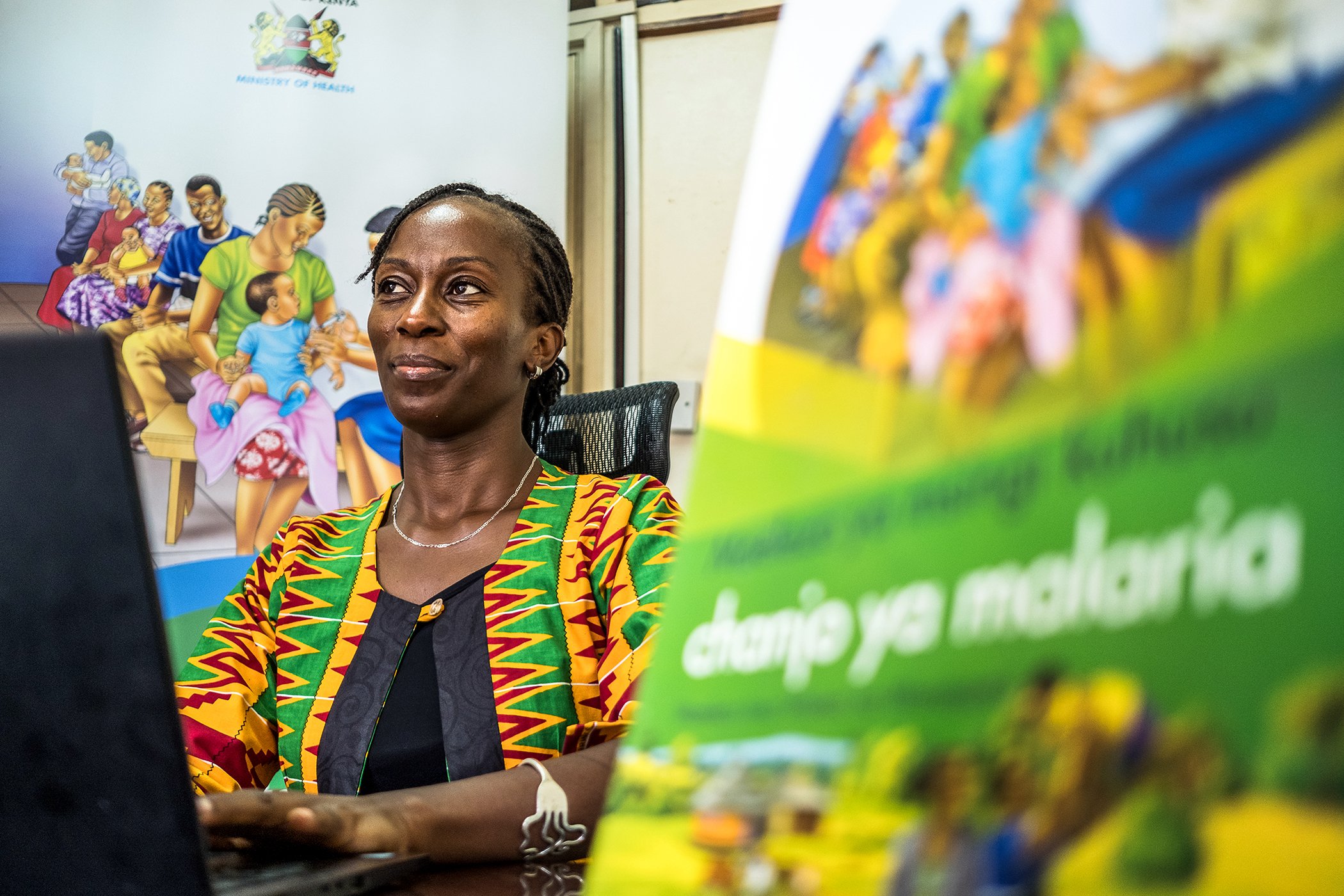 Dr. Rose Jalang'o at her office in Nairobi, Kenya on Jan. 18, 2021.
Dr. Rose Jalang'o at her office in Nairobi, Kenya on Jan. 18, 2021.
“I contracted malaria several times, a number of uncountable times for myself and also my siblings,” she told Global Citizen. “Lucky enough, all this time, I’ve never been admitted [to the hospital]. I had malaria that I could treat as an outpatient.”
But she grew up with others who wouldn’t have the same fate. When she was 10 years old, Jalang’o’s younger cousin, aged just three, passed away after contracting malaria.
This wasn’t uncommon. “I had seen it happen several times. It’s an everyday disease,” she said.
Malaria, a life-threatening disease caused by parasites, is spread to people through mosquito bites, and is both preventable and treatable. However, it can also be deadly, and children under 5 are particularly vulnerable, with those in Africa facing the greatest risk. In 2019, the WHO African Region accounted for 94% of all malaria cases and deaths — with 23% of global deaths being in Nigeria alone.
Together with a team at Kenya’s Ministry of Health, Jalang’o helped coordinate the rollout of the pilot malaria vaccine, which is given to children in four doses at 6 months, 7 months, 9 months, and 24 months.
In Kenya, the pilot program operated in 26 sub-counties in eight counties (Kisumu, Siaya, Migori, Homa Bay, Vihiga, Kakamega, Bungoma, and Busia) where malaria is endemic.
“If you go to the eight endemic counties, you’ll find that out of every 10 [outpatient visits], eight of those people have malaria. So that is how I look at it in terms of the magnitude of the disease in the western parts [of Kenya],” Jalang’o told Global Citizen.
While creating a plan on how to ensure uptake of the vaccine, Jalang’o said it was necessary to engage stakeholders including the public, community health workers, and even religious leaders.
“You let them ask questions, you let them ask clarifications, you go back to the team, [and say]: we need to do things differently,” she said.
Since September 2019, approximately 160,000 children in Kenya have received three doses with the fourth dose currently underway.
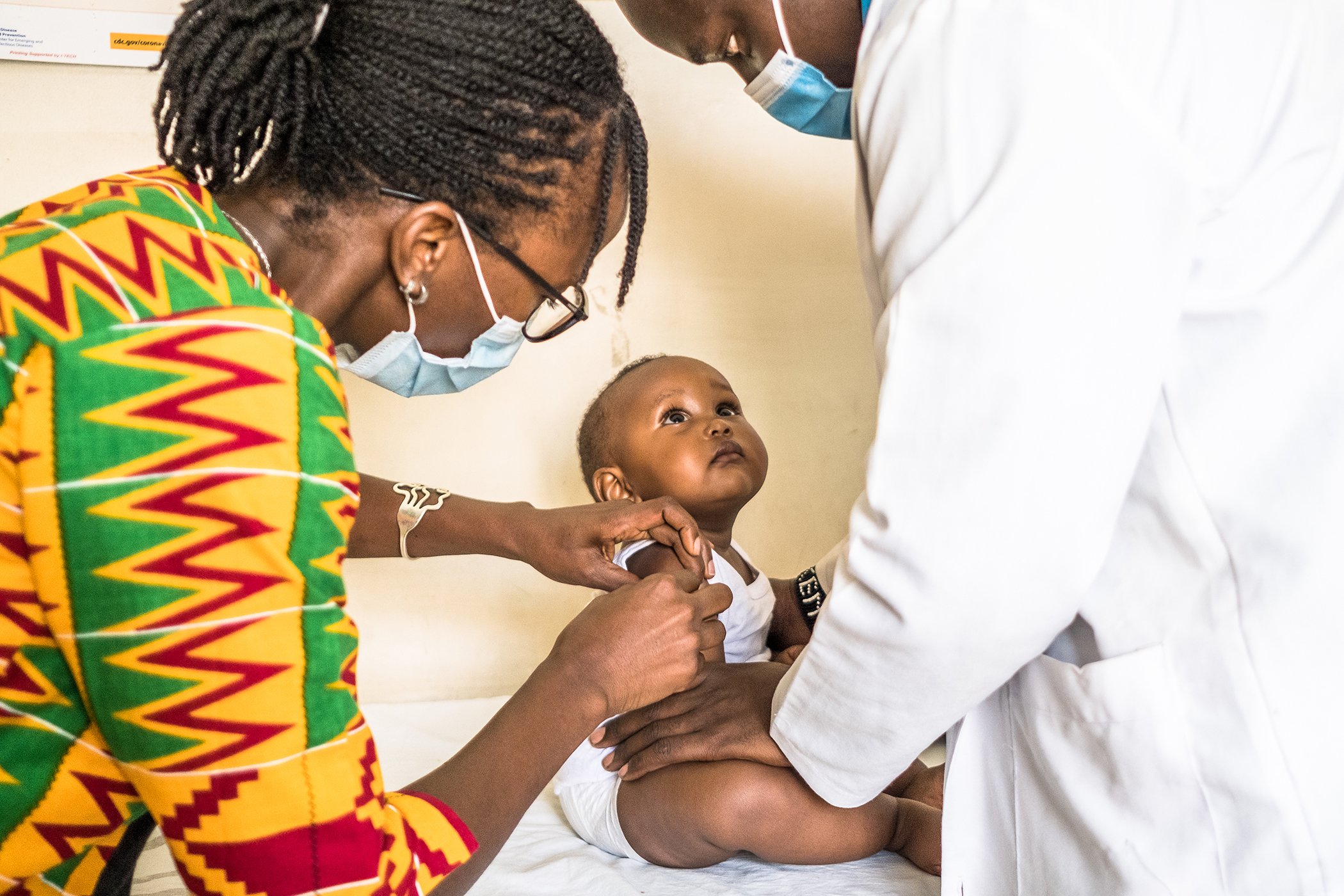 Dr. Rose Jalang'o vaccinates a child at a health facilty in Nairobi, Kenya on Jan. 18, 2021.
Dr. Rose Jalang'o vaccinates a child at a health facilty in Nairobi, Kenya on Jan. 18, 2021.
Despite the COVID-19 pandemic and concerns that it would disrupt the vaccination rollout during the pilot, Jalang’o said it did not have an effect on the uptake of the vaccine. In addition, vaccine hesitancy did not play a role in the pilot program according to Jalang’o, who said since people in Kenya’s western region are all too familiar with the deadly impact of malaria, they are willing and eager to vaccinate their children.
According to the WHO, the vaccine reduced potentially-fatal, severe malaria by 30% in children during the pilot.
Jalang’o expects that as more children are vaccinated, the reduction in severe malaria cases will have a tremendous impact on health care systems across Africa.
“If we reduce hospitalization, if we reduce incidents of severe malaria, we free the health system to focus on other diseases,” she said. “Instead of children being on oxygen because of malaria, we free that oxygen for someone else because they have another disease.”
For her part, Jalang’o is ecstatic to have played a role in this historic vaccine rollout/program, alongside her team at Kenya’s National Vaccines and Immunization program.
“I’m excited to have lived in such a time when we have the first malaria vaccine being approved for a wider scale use in African countries,” she said. “I have a feeling of just ‘wow.’”
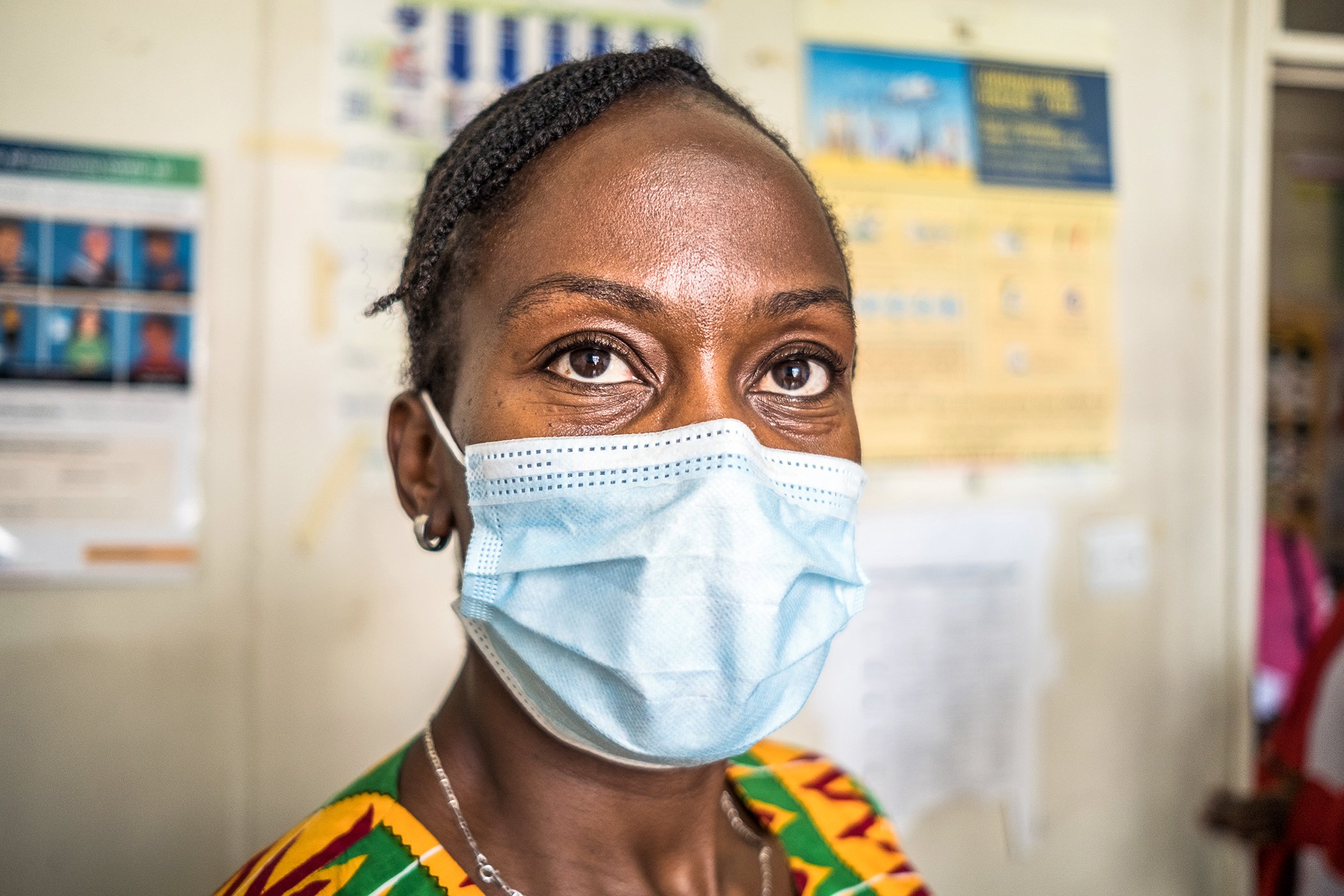 Dr. Rose Jalang'o at her office in Nairobi, Kenya on Jan. 18, 2021.
Dr. Rose Jalang'o at her office in Nairobi, Kenya on Jan. 18, 2021.
If the past two years have taught us anything about global health, it’s the importance of vaccines. The World's Best Shot is a profile series dedicated to sharing the stories of vaccine activists around the world.
Disclosure: This series was made possible with funding from the Bill and Melinda Gates Foundation. Each piece was produced with full editorial independence.
